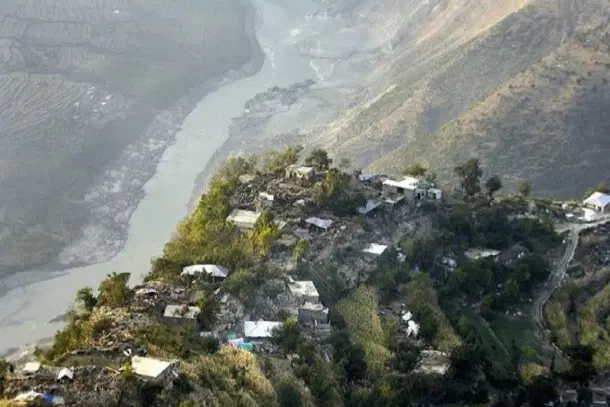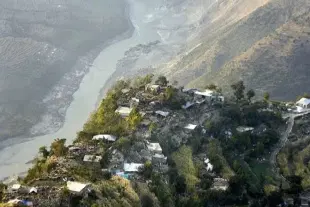News Brief
Dispute Over Indus Waters Treaty: Indian, Pakistani Officials Meet In Vienna Following New Delhi's Demand For 'Modifications'
Nayan Dwivedi
Sep 22, 2023, 03:00 PM | Updated 03:00 PM IST
Save & read from anywhere!
Bookmark stories for easy access on any device or the Swarajya app.


A delegation from India recently participated in a meeting of the neutral expert proceedings in the Kishenganga and Ratle matter at the Permanent Court of Arbitration in Vienna.
This information was announced by the Ministry of External Affairs (MEA) in a press release.
The meeting, which was convened by the neutral expert appointed on India's request under the Indus Waters Treaty, was attended by representatives from both India and Pakistan.
The delegation from India was led by the secretary of Department of Water Resources. They played a key role in the discussions and decision-making during the meeting.
India's lead counsel in this matter, Senior Advocate Harish Salve KC, also attended the meeting.
The MEA announced through a press release that India's participation in the meeting aligns with its consistent and principled stance. According to the Indus Waters Treaty, the neutral expert proceedings are the only valid proceedings at this time.
India has declined to participate in the parallel proceedings conducted by an "illegally constituted Court of Arbitration" due to the aforementioned reason. The MEA emphasised that India's decision is in line with the treaty and its provisions regarding the Kishenganga and Ratle Hydroelectric Projects.
The MEA release clarified that India's non-participation in the parallel proceedings is based on the treaty-consistent decision. It emphasised that the Court of Arbitration conducting these proceedings is illegally constituted and thus not recognised by India.
Additionally, the MEA highlighted that the neutral expert proceedings are currently ongoing and expected to continue for a significant period. India remains committed to engaging in a manner that supports the resolution of issues in accordance with the provisions outlined in the Indus Waters Treaty.
The MEA has consistently maintained that the formation of the so-called Court of Arbitration goes against the provisions of the treaty.
The MEA also responded to a press release from the Permanent Court of Arbitration (PCA) regarding the Kishenganga and Ratle hydroelectric projects.
It expressed its disagreement with the PCA's assertion that the illegally constituted Court of Arbitration has the authority to address matters related to these projects.
The ministry stressed that India cannot be compelled to acknowledge or participate in unlawful and parallel proceedings that are not outlined in the Indus Waters Treaty.
Nayan Dwivedi is Staff Writer at Swarajya.





